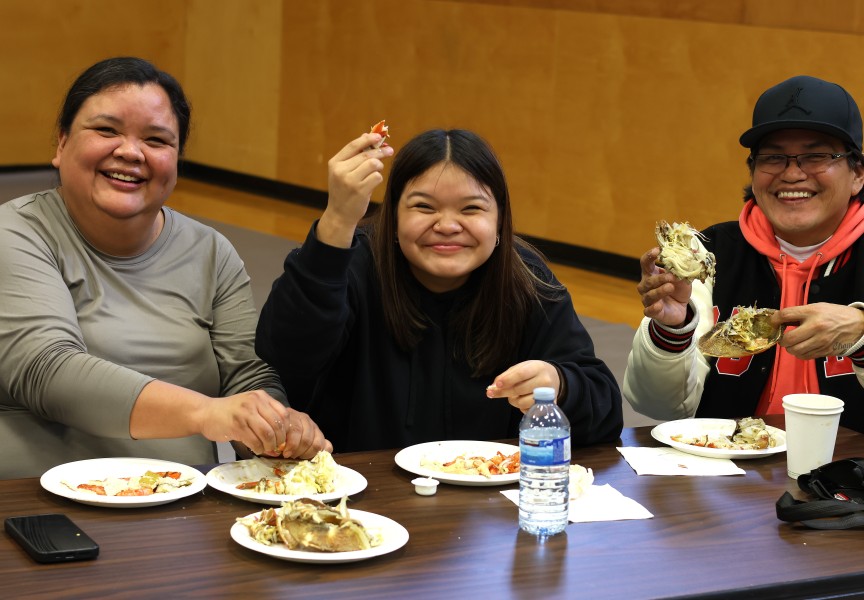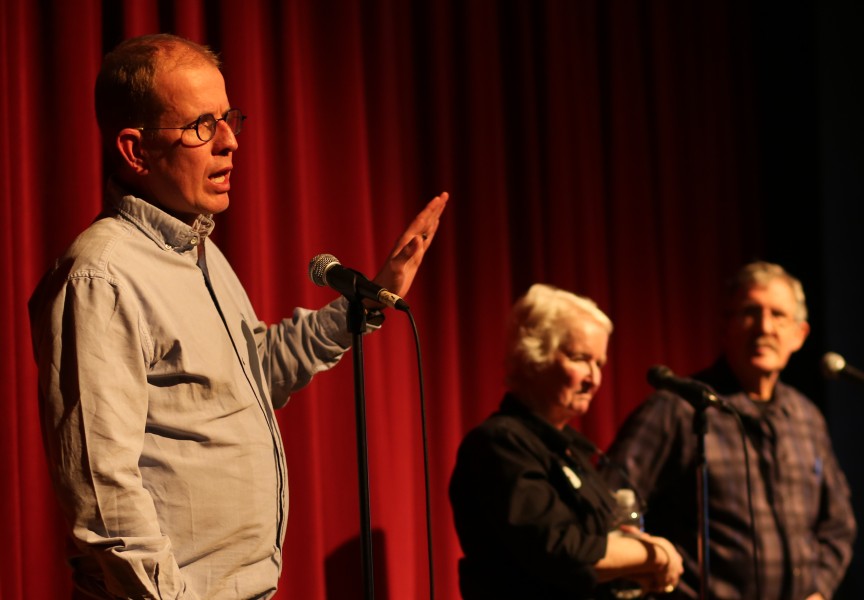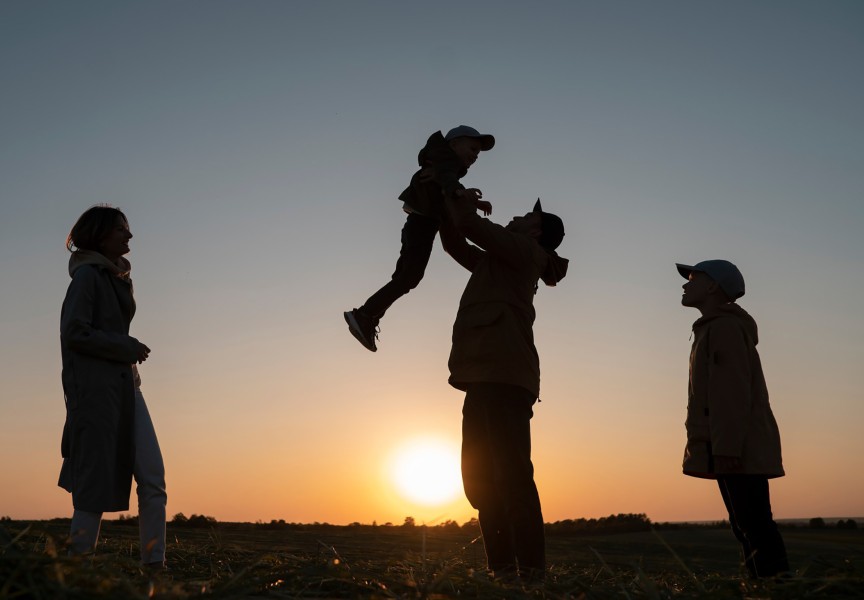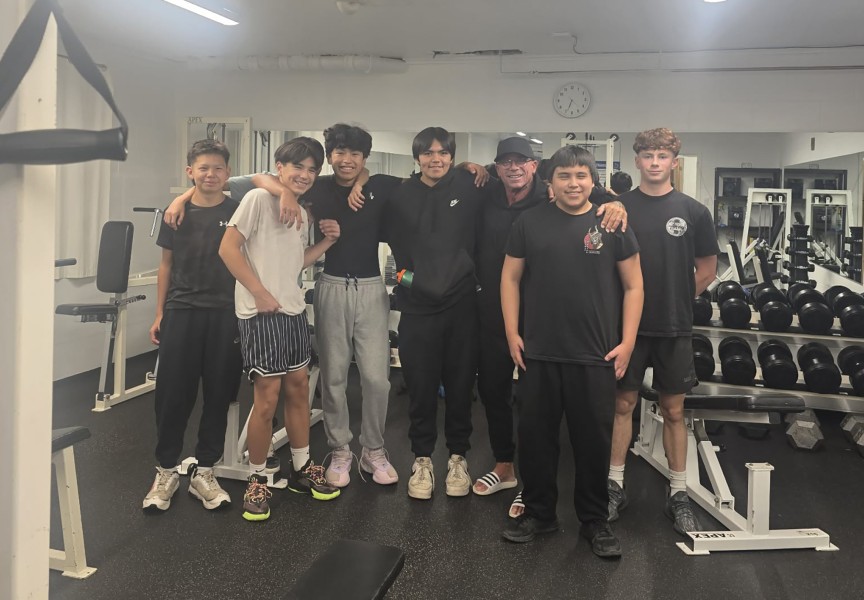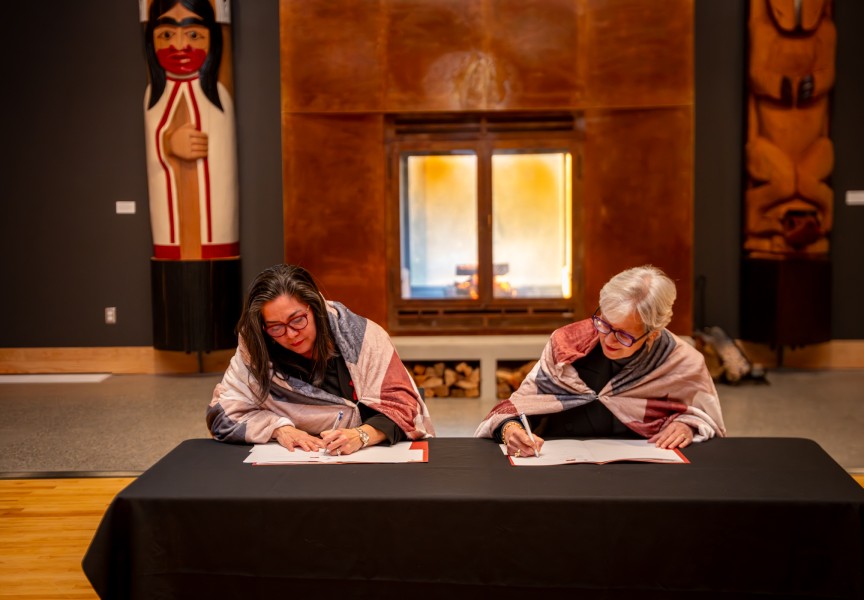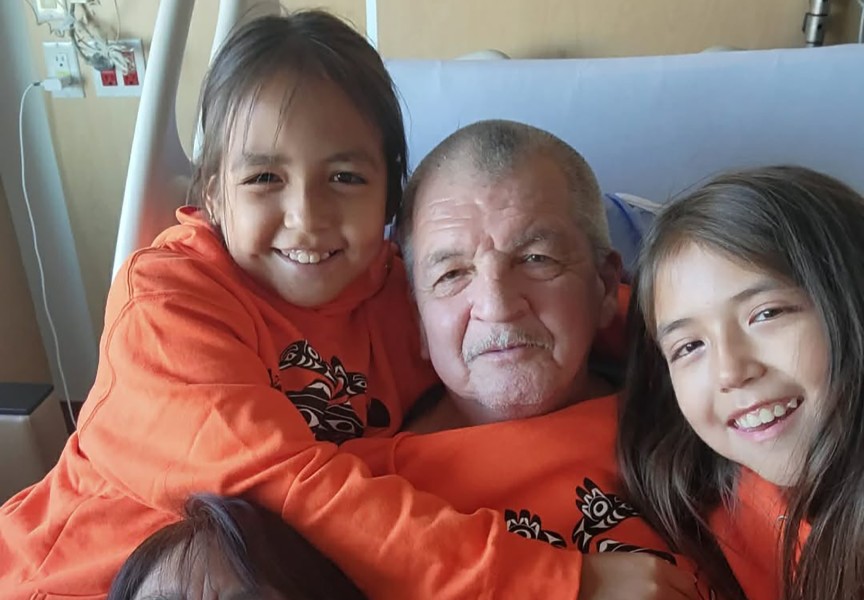The territory of the Nuu-chah-nulth is vast, encompassing over 350 kilometres across the west coast of Vancouver Island. Within this region lies dozens of coastal communities – many of which are a considerable distance by boat or logging road from the closest medical facility.
“Constant, consistent access to care closer to home. You want to talk about my No. 1 issue? That would be it,” reflects Dr. Roger Boyer II in his first month as the Nuu-chah-nulth Tribal Council’s manager of Community Health Services.
Boyer comes into the position after serving as director of research for the NTC’s COVID project, a multi-year study that looked into how the virus affected Nuu-chah-nulth, with attention to the effectiveness of the vaccine, immune response and how communities were impacted by the pandemic.
As a member of the Mississaugi First Nation, his time on the COVID project provided an introduction to Nuu-chah-nulth-aht.
“I get hugged here an awful lot more than I ever got hugged back home,” said Boyer, whose First Nation’s territory stretches from northern shore of Lake Michigan. “[Nuu-chah-nulth] know what they want, and they know how they want it. But I also know that they are very forgiving people. They love to teach when you listen.”
In his new role Boyer heads a staff of over a dozen health professionals who provide a range of supports for Nuu-chah-nulth-aht, including health management, disease prevention, immunizations, pregnancy and infant care support, patient advocacy, dietary guidance, as well as at-home-assistance for those with chronic conditions. The department offers a team of nurses, dieticians and community workers to assist Nuu-chah-nulth people with their health needs.
“Health care in its current state is often overwhelming and difficult to navigate—for patients and for families,” says Boyer. “While we don’t provide primary care, our role in public and secondary health services is critical.”
The NTC department serves all 14 nations within the tribal council, but to a varying degree depending on the needs of each nation. Some nations, like Ahousaht, have taken over a portion of their health services, but the NTC continues to support. Currently two NTC nurses work in Ahousaht’s Flores Island village of Maaqtusiis.
“Each nation wants to be able to do health care and support health care and move community health in their particular way,” said Boyer. “Being that our services cover all 14 nations, we have to make sure that each service is unique to those particular needs.”
A consistent issue across Nuu-chah-nulth territory continues to be a heavy – and costly – reliance on patient travel from remote communities. The removal of a person from their home into the institutional setting of a hospital brings inherent difficulties, reflects Boyer.
“In so many communities, the default is calling an ambulance,” says Boyer. “That person is removed from their home, their family, and placed in a colonial institution. They're often frightened, isolated, and uncertain.”
Boyer grew up in Hershey, a small town in Michigan. He attended high school six miles away in Reed City, where his prowess on the field earned a recruitment to play football for a university in Arkansas. There he gained an undergraduate degree in biochemistry, and followed this with a master’s degree in science at the University of Western Ontario. At Western Boyer worked in diabetes research.
“All of my relatives have diabetes, so I wanted to try and fix the problem,” he said.
Boyer recalls getting his first status card while at Western, which for him hinted at an Indigenous background he knew little about.
“It literally had a picture of when I was seven years old. I said, ‘Where did this come from?’,” said Boyer of the laminated card. “We weren’t raised as Indigenous. My dad carried a lot of shame about that part of our identity. When he left the community in 1969, he was struggling with stereotypes—addiction, unemployment, trauma. He didn’t want to be part of that stigma.”
A course of discovery into his Anishinaabe heritage ensued, eventually leading to a role in his First Nation’s tribal leadership, where Boyer ran a primary health care agency focused on improving access to health services.
Now based on Vancouver Island, Boyer hopes to foster supportive services for each Nuu-chah-nulth member in managing their individual health.
“Our people have an active role to play in their own health and well-being,” he says. “It’s our job to support them in walking that path.”



